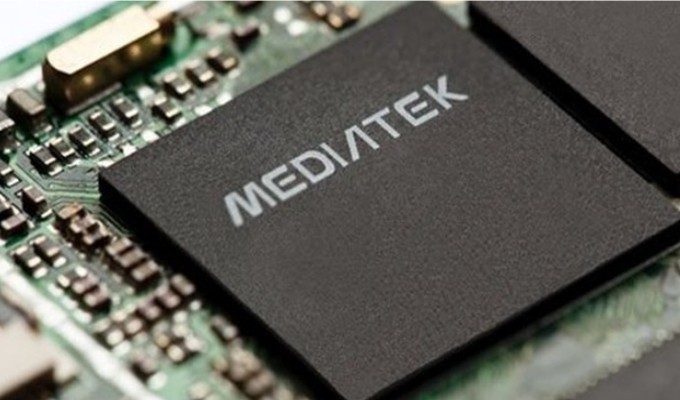Samsung Finds New Chip Partner In MediaTek
According to a report from Taiwan, MediaTek is trying to become Samsung's new chip partner, now that Samsung has begun distancing itself from using Qualcomm's chips. MediaTek didn't say much about its deal with Samsung, but the company's Deputy General Manager, Zhu Shan-gzu, admitted their relationship with Samsung has been improving lately.
"We made progress little by little in some direction," Shan-gzu said.
MediaTek has already announced some new chips at MWC 2015 this week, one of which includes the brand-new Cortex-A72 CPU core, which is the successor to the Cortex-A57 core seen inside chips such as the Qualcomm Snapdragon 810 and Samsung Exynos 7420.
MediaTek has been making bigger advancements with new chips at the high-end of the market, as demand for these chips has increased. In China, MediaTek is already a strong competitor to Qualcomm, because many Chinese manufacturers prefer to use its chips. MediaTek's chips have also appeared in some low-end and mid-range phones from Sony, HTC, Asus and other known mobile companies, although MediaTek's chips are in much fewer smartphone models than those of Qualcomm.
As Samsung is looking to differentiate itself from other smartphone OEMs who tend to default to using Qualcomm's chips, the closeness to MediaTek may become inevitable. Samsung can build its own Exynos chips, but those usually target only the high-end of the market, and only its Galaxy S and Galaxy Note flagships have them.
It's unlikely that Samsung will begin producing chips for all performance and pricing levels anytime soon, so a partnership with another chip maker, like MediaTek, makes sense.
At the same time, this is a big opportunity for MediaTek to conquer more of the western markets, where we're seeing much of Samsung's success. A strong partnership with Samsung could help MediaTek sell many more chips considering Samsung's significant smartphone market share. It would also give MediaTek a stronger entry in the U.S. market where most smartphone customers have gotten used to either Qualcomm chips or Apple's own chips in iPhones.
Get Tom's Hardware's best news and in-depth reviews, straight to your inbox.
Follow us @tomshardware, on Facebook and on Google+.
Lucian Armasu is a Contributing Writer for Tom's Hardware US. He covers software news and the issues surrounding privacy and security.
-
kenjitamura Don't do it Samsung! Mediatek is not good for the smartphone ecosystem; they walk all over the open source licenses and refuse to release source code which prevents independent developers from being able to make smartphone OS ports for their hardware. This is very bad because the lack of foreseeable long term OS upgrades KILLS the value of the smartphone in the eyes of many consumers!Reply
Stick with Qualcomm until 2016 when AMD starts releasing their own ARM chips for smartphones. Stay away from Mediatek, Rockhip, Amlogic and Allwinner! -
wjs19 Took me like 5 seconds on Google to find out that Mediatek does release source code, though they didn't previously so you're operating on old informationReply -
kenjitamura ReplyTook me like 5 seconds on Google to find out that Mediatek does release source code, though they didn't previously so you're operating on old information
Took me like 5 seconds on Google to find out that Mediatek has only ever released source code for the "Android One" series of devices and that because they did this in a partnership with Google themselves they were most likely forced into doing so.
-
alextheblue ReplyDon't do it Samsung! Mediatek is not good for the smartphone ecosystem
Agreed. The Chinese chip designers are poison for the market too, in the long term.
Stick with Qualcomm until 2016 when AMD starts releasing their own ARM chips for smartphones. Stay away from Mediatek, Rockhip, Amlogic and Allwinner!
-
MKeehl More problems with MediaTek: http://mer-project.blogspot.com/2015/03/some-doubts-about-gpl-licensing-and-bq.htmlReply
